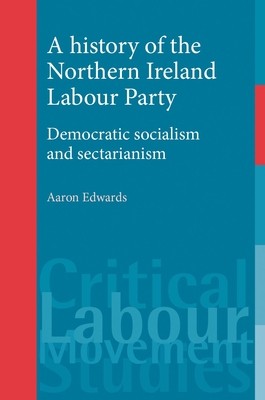
- We will send in 10–14 business days.
- Author: Aaron Edwards
- Publisher: Manchester University Press
- ISBN-10: 0719086388
- ISBN-13: 9780719086380
- Format: 15.6 x 23.4 x 1.4 cm, softcover
- Language: English
- SAVE -10% with code: EXTRA
Reviews
Description
Available for the first time in paperback, this book is the first definitive history of the Northern Ireland Labour Party (NILP), a unique political force which drew its support from Protestants and Catholics and became electorally viable despite deep-seated ethnic, religious and national divisions. Formed in 1924 and disbanded in 1987, the NILP succeeded in returning several of its members to the locally-based Northern Ireland parliament in 1925-29 and 1958-72 and polled some 100,000 votes in both the 1964 and the 1970 British general elections. As British Labour's 'sister' party in the province from the late 1920s until the late 1970s, the NILP could rely on substantive fraternal and organisational support at critical junctures in its history. Despite its political successes the NILP's significance has been downplayed by historians, partly because of the lack of empirical evidence and partly to reinforce the simplistic view of Northern Ireland as the site of the most protracted
sectarian conflict in modern Europe.
EXTRA 10 % discount with code: EXTRA
The promotion ends in 12d.03:59:49
The discount code is valid when purchasing from 10 €. Discounts do not stack.
- Author: Aaron Edwards
- Publisher: Manchester University Press
- ISBN-10: 0719086388
- ISBN-13: 9780719086380
- Format: 15.6 x 23.4 x 1.4 cm, softcover
- Language: English English
Available for the first time in paperback, this book is the first definitive history of the Northern Ireland Labour Party (NILP), a unique political force which drew its support from Protestants and Catholics and became electorally viable despite deep-seated ethnic, religious and national divisions. Formed in 1924 and disbanded in 1987, the NILP succeeded in returning several of its members to the locally-based Northern Ireland parliament in 1925-29 and 1958-72 and polled some 100,000 votes in both the 1964 and the 1970 British general elections. As British Labour's 'sister' party in the province from the late 1920s until the late 1970s, the NILP could rely on substantive fraternal and organisational support at critical junctures in its history. Despite its political successes the NILP's significance has been downplayed by historians, partly because of the lack of empirical evidence and partly to reinforce the simplistic view of Northern Ireland as the site of the most protracted
sectarian conflict in modern Europe.


Reviews